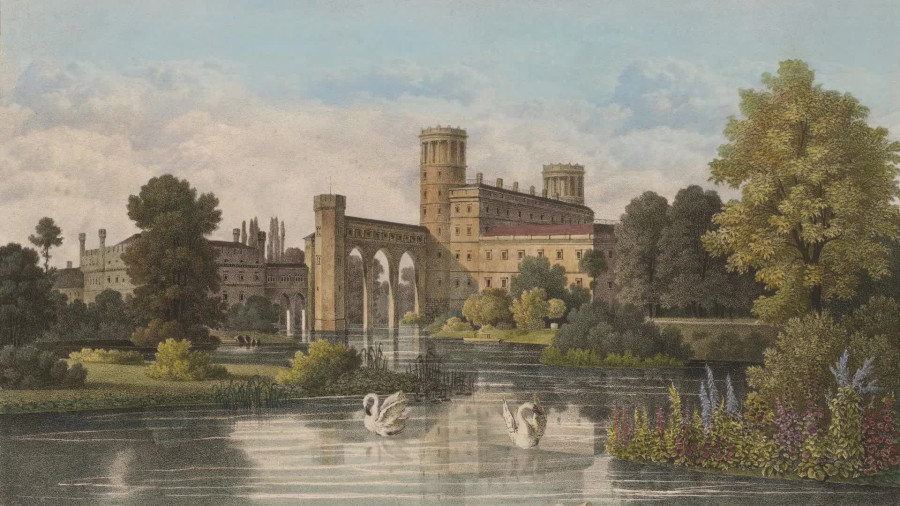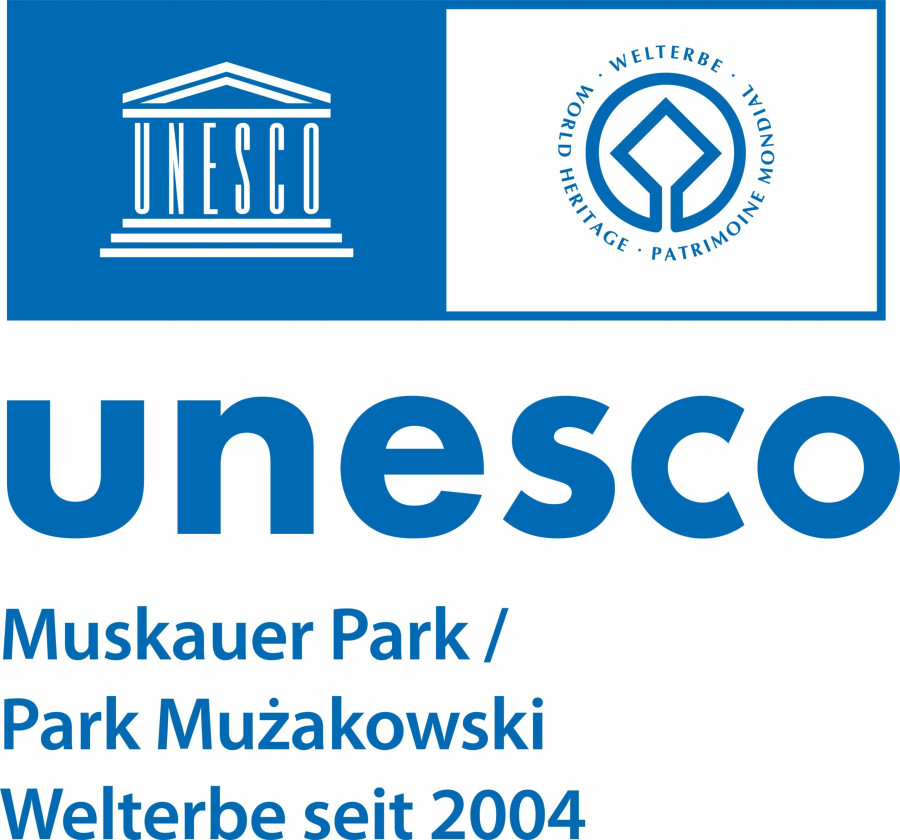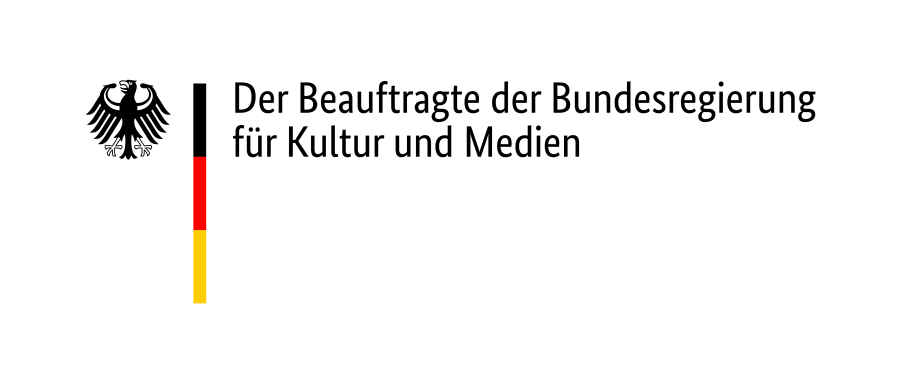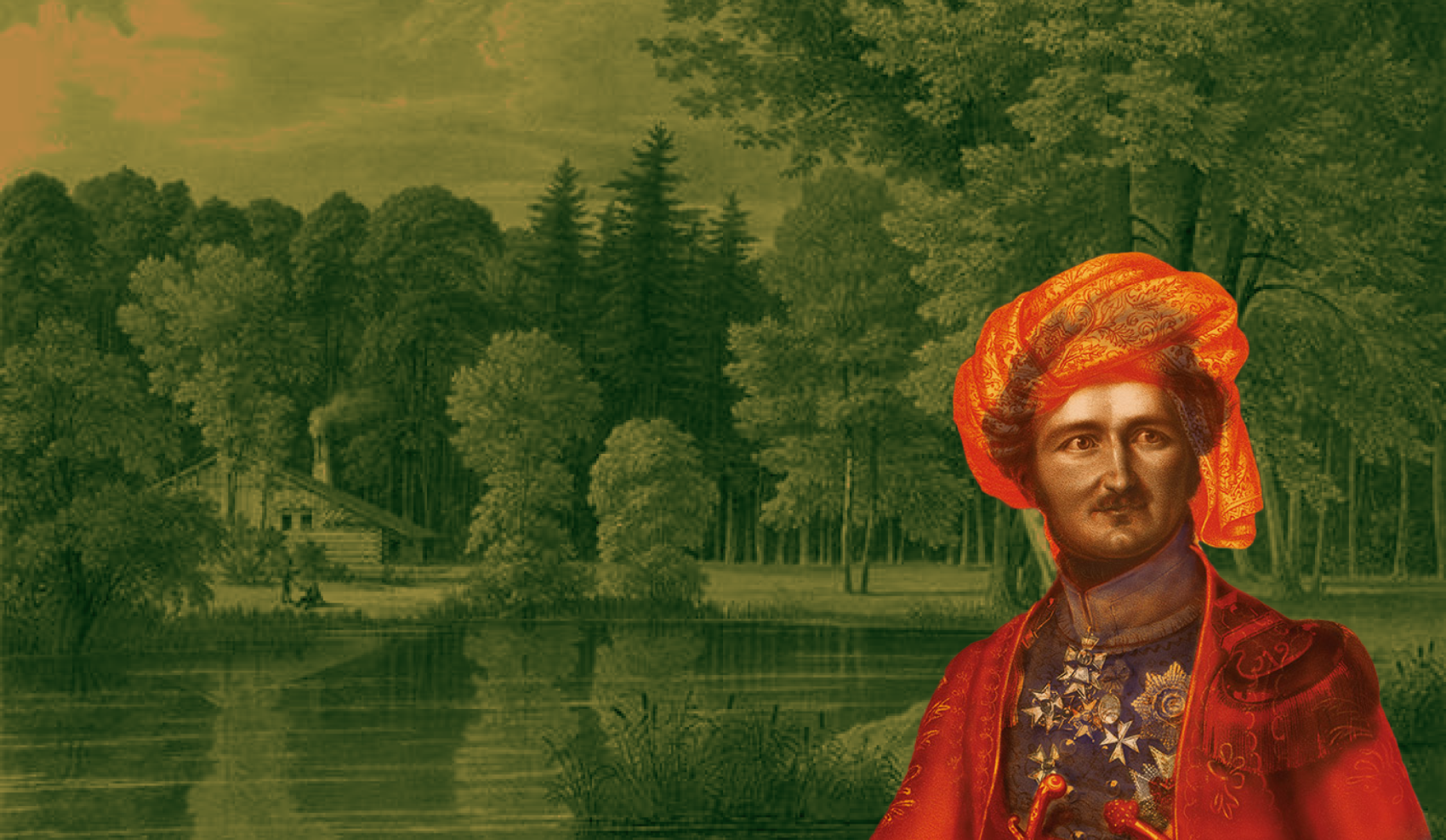
Eccentric, Headstrong, Dazzling: Pückler!
Hermann Price von Pückler-Muskau (1785–1871) lacked neither self-confidence nor extravagance. Heinrich Heine called him the “most fashionable of all eccentrics”. As a garden designer, the creative aristocrat developed a veritable mania. Some things remained just a vision in beautiful pictures on paper. What the park oomaniac ultimately realized leaves an indisputable impression - not only in Bad Muskau.
Prince
As far as the time of his birth is concerned, Hermann was a Sunday child. He was born on 30th October 1785 - the eldest of five children. His parents' marriage was not under a good star, as it had been concluded by contract for purely pragmatic reasons. Pückler's grandfather, Count Hermann von Callenberg, had married his daughter Clementine to Erdmann von Pückler, who was 16 years older. His family had owned the Branitz estate since 1696.
Count Hermann von Pückler took over the Muskau estate from his father in 1811. He was awarded the title of prince in 1822. As early as 1815, he appealed to the citizens of Muskau to give him land for his grand plans: the creation of a landscape garden on both sides of the Neisse.
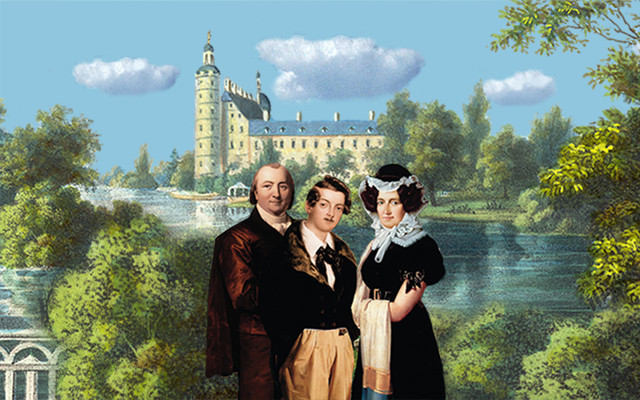
Landscape Artist
Pückler dedicated his life to landscape gardening. From 1815 to 1845, the prince spent three decades working on his Muskauer Park, which put him on a par with great landscape architects such as Sckell and Lenné. He was repeatedly slowed down by financial difficulties and tough land negotiations.
In order to complete his work at least on paper, the prince immortalized his park vision in 1834 in the “Andeutungen über Landschaftsgärtnerei” (Notes on Landscape Gardening) - still a standard work in specialist circles today. Pückler also worked as a landscape designer in Neuhardenberg, Babelsberg, Thuringia, Paris and Branitz.
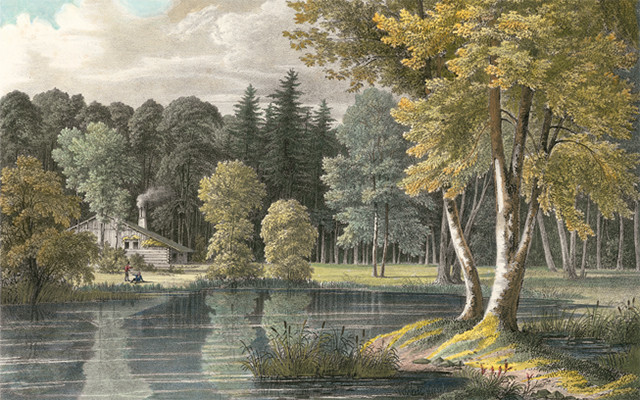
... If you want to know me completely, you have to know my garden, because my garden is my heart.Pückler-Muskau, Hints on landscape gardening, 1834
Globetrotter
Wether Orient or Occident – Pückler felt at home everywhere. So it may come as no surprise when he openly admitted: “How much more one lives when traveling!” Oriental customs and traditions in particular fascinated the enterprising and restless prince. For years, he escaped everyday life in Muskau by traveling the world: to England, Ireland, France, Switzerland, Italy, Greece, Egypt and Sudan.
While traveling the world, Pückler did not shy away from absurd or even macabre productions, true to the motto: “My motto is not: What will people say about this? But rather: Will people say something about it?”
Numerous anecdotes describe his imaginative performances, such as one in front of the “Kranzler” café in Berlin. According to his own account, the prince is said to have driven up there in a carriage with white deer, even though this type of animal cannot be tamed...
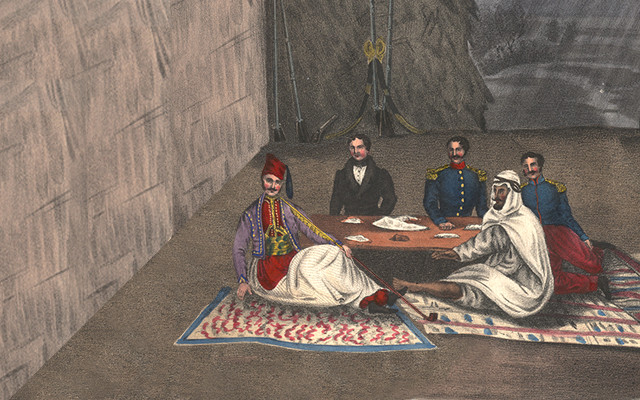
Author
Pückler published ten books with a total of 29 volumes, including his most famous work “Letters of a Deceased Man”. During his trip to England from 1826 to 1829, Pückler wrote numerous letters to his companion Lucie telling her of his experiences. The Prince dissected English society and characterised it mercilessly and wittily in this book. Pückler finally published these letters under a pseudonym. Goethe probably contributed significantly to the worldwide success of the book with his extremely positive review.
No other work by Pückler achieved the great popularity of “Letters of a Deceased Man”, despite exotic titles such as “Semilasso in Africa”, “From Mehemed Ali's Empire” or “South-Eastern Picture Room”.
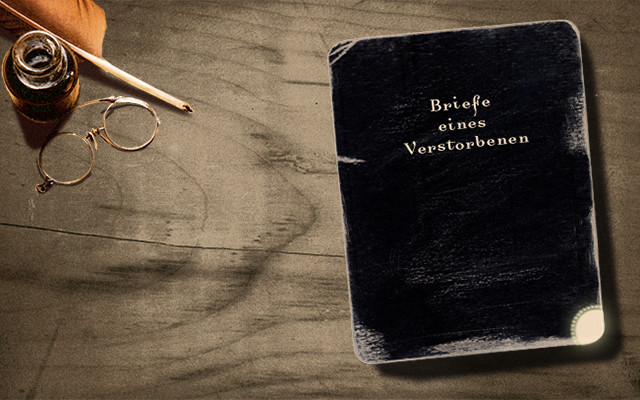
Womanizer
Women inspired Pückler's spirit. Whether aristocrats, commoners or artists - the successful charmer cultivated numerous acquaintances and correspondences, for example with Augusta Princess of Prussia, the writer Bettina von Arnim or the singer Henriette Sontag. He even arranged love letters alphabetically for a better overview.
Pückler affectionately called his wife Lucie, born von Hardenberg, “Schnucke”. Even after their divorce, he found her to be a loyal companion, tolerant supporter and motherly friend.
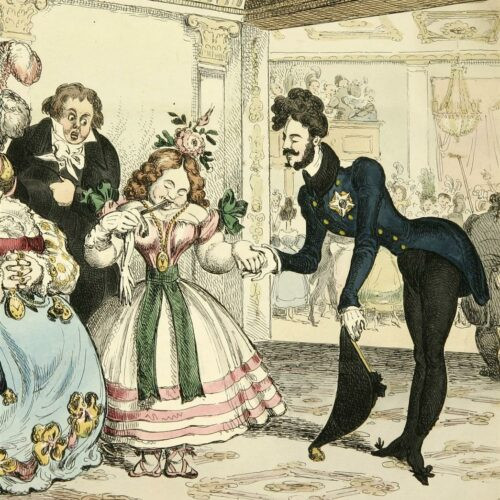
Muskau ... my life’s work
Pückler-Muskau, Diary, 7th Sept. 1846